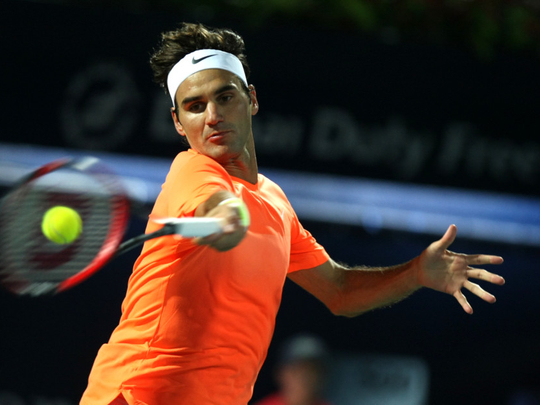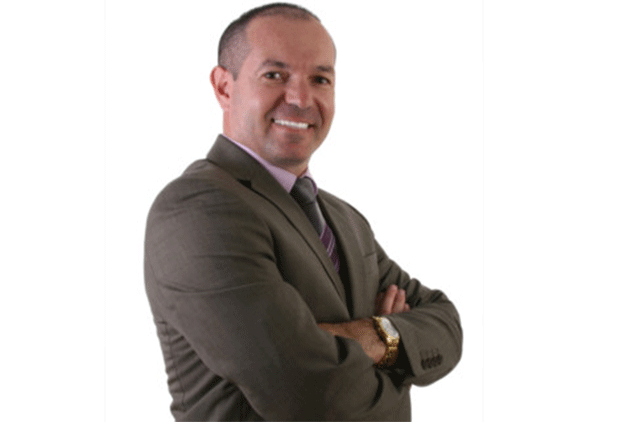
“There are people who don’t smile when they win, and there are people who smile for weeks afterwards. I’m the kind of guy who lets the tears flow,” were the words Roger Federer spoke after winning his first Wimbledon title.
Yes, victory is always sweet, especially when you have really worked hard for it. But underneath that calm posture that we see in Federer on court is probably a storm.
The world no 2 and Dubai Duty Free Tennis Championship semi-finalist (till the time we went to print — he was to play semi-finals on Friday) has admitted he wasn’t always able to keep calm on court.
“I used to throw my racket around like you can’t imagine,” he had admitted earlier. “I was getting kicked out of practice sessions non-stop when I was 16.”
“[Getting angry on court] is the worse that can happen [to a player] if the player argues with other players or the referees, or the player is upset by his performance and puts himself off the optimal zone,” says Dubai-based psychologist Martin Kramar, who also specialises in sports psychology. “Thoughts have huge power for cells and immunity and negative thoughts or fears eliminate the performance. They must be trained to overcome these outbursts by establishing tailored coping mechanisms which also he/she can appropriately apply in critical situations.”
But his ambition to be no 1 (a spot he has held for 302 weeks, including 237 consecutive weeks) had a stronger hold on Federer than his temper, for which he decided to consult a sports psychologist at 17. The results of which have become history.
Over the years, we’ve seen several tennis players lose it on court. John McEnroe was legendary not just for his games but his on-court arguments with everyone from umpire to the cleaner, metaphorically speaking. Among others, women’s world no 1 Serena Williams too is known for her feistiness.
“[A sports psychologist’s] job is to be a supporting element in the player’s career and life itself, which involves preparation for the training as well as games and mainly for the various difficult life situations on the field as well as off it in their the personal lives,” explains Kramar. “Modern sport psychology requires to [be in tandem] with modern science. Many professional teams have the most modern equipment to measure and monitor various psycho-physiological changes in data as indicators for optimal training process to eliminate over training or to set the best mental and physical preparation [plans] before the games.
The Heart Rate Variability Biofeedback monitors the player’s sympathetic and parasympathetic activity for optimal mental balance to increase the stress resistance and the overall energy level in the athletes.”
Kramar believes that the stress and pressure a sportsperson goes through differs with the sport, but in most cases the stress culminates before the game or execution of the sport related drills and the best way to deal with it would be to activate the best sensomotoric balance.
“My diagnoses and objective assessments for the athletes are based on the results of the HRV measurements which serve as a window to athlete’s soul.
According to the HRV wave forms and their coherence or incoherence, I diagnose many things including health conditions, personality traits, predicting behaviours, mental strengths or weaknesses and so on. A mental and physical equilibrium can be achieved through training in proper breathing exercises to activate the HR deceleration trends and the shift from inward to outward focus before the game.”
Kramar urges local sports academies and councils to look into the psychological aspects of playing to create better sportspersons.
“I think that sport psychology has a great potential in UAE, but it must be better applied. Each player requires different approach, support and the way for encouragement which must be sensitively tailored to his/her sport preparation”.
He also advises to start the consultation early when the players are still young as they are more susceptible to failure.
“[Though] it is difficult to say, in general, children may recover quicker and they also tend to forget faster about a loss. Yet, they can be more sensitive to other aspects of the game and they need to have more support and attention from the coaches and parents”.
“Previously I always thought it was just tactical and technique, but every match has become almost mental and physical — I try to push myself to move well,” Federer had said after winning the Dubai Duty Free Open Tennis Championship for the fourth time in 2007. “I try to push myself not to get upset and stay positive, and that’s what my biggest improvement is over all these years. Under pressure I can see things very clearly.”













